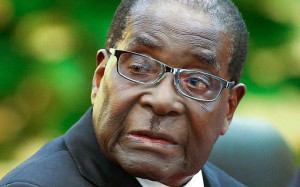EU Renews Sanctions Against Mugabe
In a recent turn of events, the European Union has renewed its sanctions against Zimbabwe for another year. These sanctions were instituted in 2002 after an investigation of suspicious election results revealed electoral fraud on the part of President Mugabe. Around the same time, Mugabe was linked to a series of human rights violations in the country, said to be for the purpose of guaranteeing an electoral victory. Today, at 91 years old, he’s far from providing the progressive political views that the country desperately needs and wants, after maintaining his hold on power for over 27 years.
 Given the EU’s commitment to sanctions since 2002, it’s evident that although the sanctions are officially placed against Zimbabwe, their primary objective is to cripple and eventually dethrone Mugabe.
Given the EU’s commitment to sanctions since 2002, it’s evident that although the sanctions are officially placed against Zimbabwe, their primary objective is to cripple and eventually dethrone Mugabe.
These sanctions have included a variety of stipulations, including a travel ban on President Mugabe and his spouse Grace and the freezing of Mugabe’s assets domestically and abroad to ensure that he cannot stage any significant political move or take refuge abroad. Although these sanctions are significant for one individual, there are many questions as to whether or not they’re actually effective. The sanctions have been in effect for almost 14 years, and Mugabe has remained not only wealthy and relatively unrestricted, but also has won another election under similar conditions to those which first earned him these sanctions. Although the sanctions are set to be renewed on the 20th of February next year, the EU might consider raising their limitations to create a legitimate impact on Mugabe and bring about the possibility for political change.
In some respects, the sanctions have been reduced recently, as the EU has granted Zimbabwe and consequently Mugabe a grant total of 234 million Euros in the form of aid in the past year. This aid package was the first granted to the country since the sanctions first took effect in 2002. Additionally, Mugabe’s travel ban has been waived on the continent if his trips pertain to official African Union business.
The overall aim of these sanctions was, first and foremost, to encourage the political climate in Zimbabwe toward more transparency and democracy. Upon winning yet another election in 2013, which was observed to be fair by neutral third party observers but fraudulent by the losing party, the EU Chairs were conflicted as to whether or not to remove the sanctions, leading to the aforementioned alleviation of certain bans. That being said, the EU still does not believe that Mugabe has made enough changes in his political conduct to fully remove the ban.
Whether or not the EU chooses to renew the sanctions again next year, one must keep in mind their goal. It’s difficult to blame one person for problems within a whole political system, but when this person has been the leader of the country since independence in 1980, it is fair that this individual should assume most of the blame for the state’s deplorable democratic state. Given his age and obduracy, Mugabe’s political practices will likely never change, and therefore the sanctions shall remain. So long as these sanctions alter his actions enough to not completely destabilize the political system and leave some semblance of a democratic system for the next leader, they've achieved their purpose.
